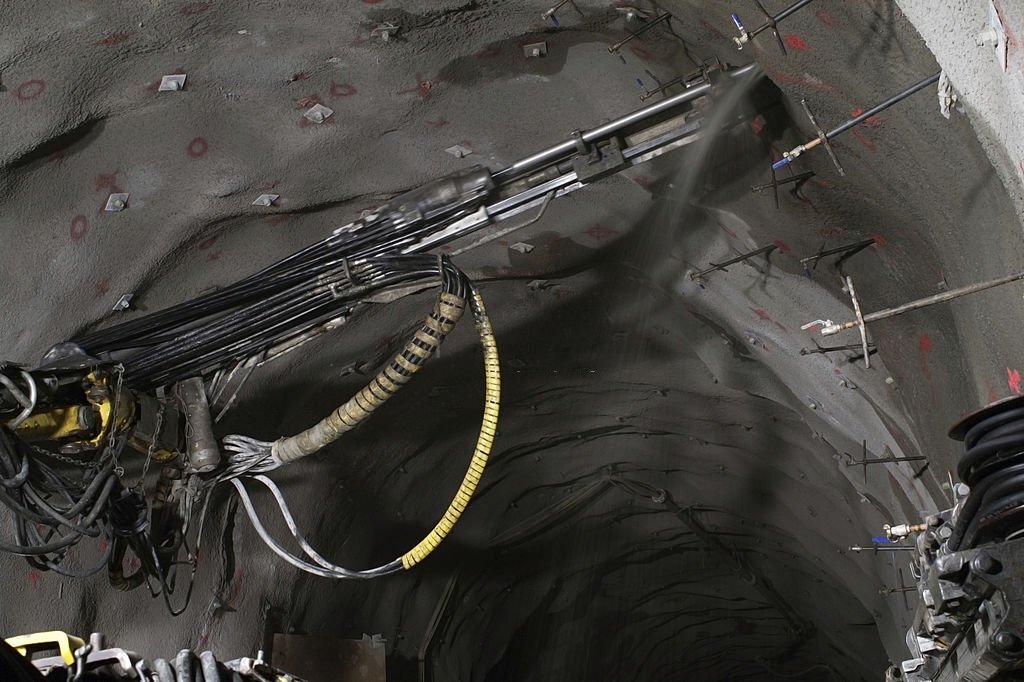
Introduction:
Drilling machines serve as indispensable tools in the realm of tunneling, facilitating rock excavation, ground stabilization, and support installation. As tunneling technology evolves, a variety of drilling machines have emerged, each tailored to specific tasks and geological conditions. This article delves into the diverse types of drilling machines used in tunneling, highlighting their functions, advantages, and crucial roles in advancing underground construction projects.
The Role of Drilling Machines in Tunneling: Drilling machines are instrumental in several crucial aspects of tunneling, including:
- Rock Excavation: Drills break through rock formations, creating pathways for tunnels.
- Ground Stabilization: Drilling stabilizes the surrounding ground, preventing collapses during excavation.
- Support Installation: Drills create holes for installing reinforcement elements, enhancing tunnel stability.
Different Types of Drilling Machines in Tunneling:
- Percussion Drills: These drills use a striking action to break rock, making them suitable for softer formations.
- Rotary Drills: Rotary drills use rotational motion to create holes and are ideal for harder rock.
- Jumbo Drills: Jumbo drills are larger machines equipped with multiple drills, increasing efficiency in larger-scale excavations.
- Raise Boring Machines: These machines create vertical shafts within tunnels, providing access and ventilation.
- Longhole Drills: Longhole drills are used for horizontal tunneling, commonly employed in mining operations.
- Directional Drills: Directional drills create boreholes at specific angles, facilitating precise tunnel alignment.
Drilling Methods in Tunneling:
- Percussive Drilling: Percussive drills strike the rock to create fractures, which are then cleared by air or water jets.
- Rotary Drilling: Rotary drills use a rotating bit to break rock, with cuttings being flushed out by water or air.
- Down-the-Hole (DTH) Drilling: DTH drills deliver high-impact force through the drill bit, suitable for hard rock.
Advantages of Different Drilling Machines:
- Efficiency: Jumbo drills and directional drills expedite the drilling process in larger and more complex tunneling projects.
- Precision: Directional drills ensure accurate borehole angles for tunnel alignment.
- Flexibility: Percussive and rotary drills offer versatility in various rock formations and excavation methods.
Support Systems and Ground Stabilization:
- Bolting Machines: These machines insert rock bolts into boreholes, enhancing ground stability.
- Grouting Machines: Grouting equipment injects grout into boreholes to stabilize loose ground.
Case Studies of Drilling Machine Applications:
- Mont Blanc Tunnel: Jumbo drills were used to excavate this major Alpine tunnel connecting France and Italy.
- Eurotunnel: Percussive and rotary drills played a vital role in excavating the Channel Tunnel.
Challenges and Solutions in Drilling:
- Geological Variability: Different rock formations require customized drilling techniques and equipment.
- Safety Considerations: Drilling in confined spaces necessitates specialized training and stringent safety measures.
Innovations in Drilling Technology:
- Automation: Advanced drilling machines are increasingly autonomous, enhancing safety and efficiency.
- Real-time Monitoring: Integrated sensors provide instant feedback on drilling performance and ground conditions.
Future Prospects for Drilling Machines in Tunneling:
- Enhanced Efficiency: Continued integration of automation and advanced sensors will boost drilling precision and speed.
- Sustainable Practices: Eco-friendly drilling machines will align with environmental conservation efforts.
Conclusion:
Drilling machines form the bedrock of tunneling endeavors, propelling rock excavation, ground stabilization, and support installation. From percussive drills breaking through softer rock to directional drills ensuring precise tunnel alignment, each type of drilling machine contributes to the success of underground construction projects. As technology advances, the integration of automation, real-time monitoring, and sustainable practices will continue to redefine the capabilities of drilling machines, ensuring their indispensable role in the evolution of tunneling and underground infrastructure development.

